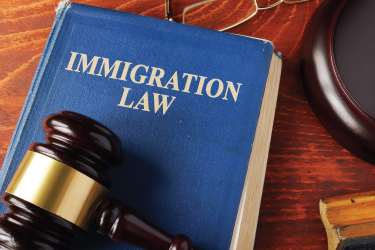Immigrants’ Rights

The U.S. Constitution reserves the power to set immigration laws and policies exclusively to the federal government. However, immigrants have constitutional rights and statutory protections in the areas of civil rights and hate crime, fair labor standards, consumer protection, and more.
The Pennsylvania Office of Attorney General does not enforce immigration law, but does have several units with jurisdiction to enforce state and federal laws affecting the legal rights of immigrants: the Civil Rights Enforcement Section, Fair Labor Section, Bureau of Consumer Protection, and Impact Litigation Section. Where applicable, complainants may be referred to other agencies or non-governmental organizations in a better position to assist.
At the Pennsylvania Office of Attorney General:
- We serve all Pennsylvania residents, irrespective of immigration status
- We do not inquire about an individual’s immigration status
- We do not provide personal information to U.S. Immigration and Customs Enforcement (ICE) (unless required by subpoena or judicial warrant)
- We do not tolerate retaliation against residents who lodge complaints with the Attorney General’s Office or otherwise assert their legal rights
Below are short summaries of key legal rights that immigrants have regardless of their documentation status, though a person’s undocumented status may affect the type of relief that is available. Importantly, moreover, the various laws generally protect complainants against retaliation for making complaints.
Constitution – the U.S. Constitution protects persons regardless of their immigration status. Key protections include the prohibition against law enforcement conducting unreasonable searches and seizures; or violating the constitutional guarantee of due process; or engaging in discrimination based on race or ethnicity. (The Constitution of the Commonwealth of Pennsylvania is substantially equivalent to the U.S. Constitution.)
- Example: A Latino motorist is stopped by police not because of an articulable, reasonable suspicion of a crime, but rather because he is suspected of being an undocumented immigrant due to his race, color, or ethnicity. This would violate his constitutional rights.
Civil Rights Laws – immigrants, regardless of their status, are protected from unlawful discrimination in employment, education, housing, and public accommodations (e.g., restaurants, hotels) on various bases, such as race, national origin, religion, sex, disability, and age. Moreover, public education and certain types of housing may not be denied because of undocumented status. In addition, federal law prohibits employers from engaging in citizenship discrimination or document abuse (e.g., requesting more or different documents than are required to verify employment eligibility).
- Example: A family originally from the Middle East is denied an apartment by a landlord who believes the family is undocumented, or terrorists, or both, due to their race, color, national origin, or religion. This would violate their state and federal civil rights.
Labor Laws – immigrants, regardless of their status, are legally entitled to engage in union organizing and other concerted activity; to minimum wage and overtime pay; and to a workplace that meets occupational safety and health standards.
- Example: After a group of undocumented Latina workers complain about not being paid for overtime work, their supervisor threatens that he will “call ICE” if they do not drop their complaint. This would violate their labor rights, and may violate trafficking laws.
Consumer Protection Laws – immigrant consumers, regardless of their status, are protected from unfair and deceptive trade practices by the Pennsylvania Unfair Trade Practices and Consumer Protection Law.
- Example: A storefront business in a predominantly Asian neighborhood lures customers into the store with advertisements stating that the business will legally represent them before federal immigration authorities and secure their legal status, but in fact the business is not licensed to practice immigration law. This would violate the Pennsylvania Unfair Trade Practices and Consumer Protection Law.
Contact Other OAG Sections:
Other Selected Agencies:
Nothing on this page should be construed as legal advice.


